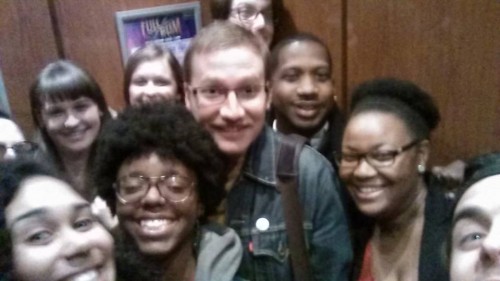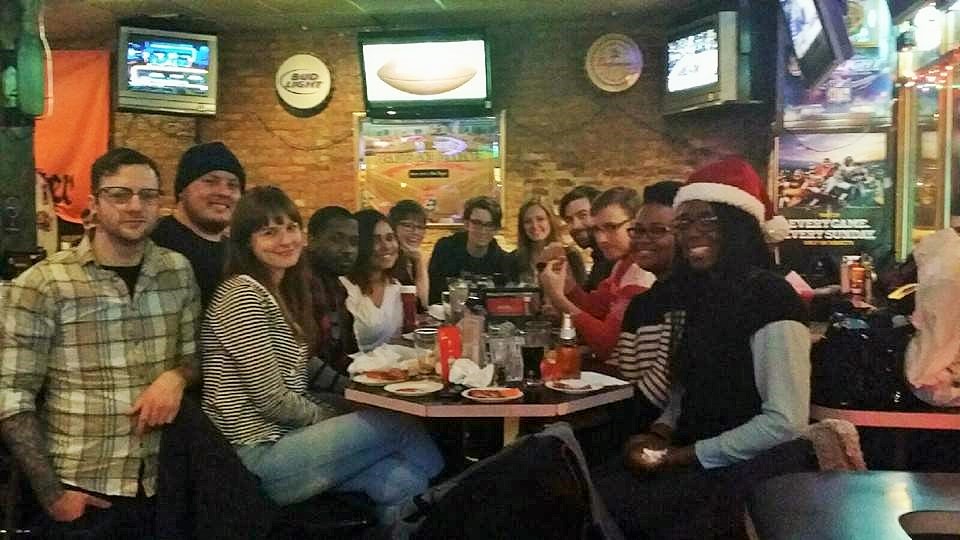
An Atypical Year with Atypical People
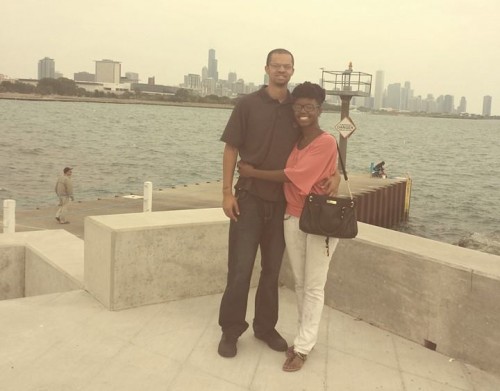
My fiance Rahsaan I our second weekend in the city! [Photo courtesy of Rahsaan Shareef]
My fiance and I drove here from DC in a UHaul with our cat Sheba meowing in her carrying-case between us. As we reminisce, it’s surreal to think of the First Years heading here from their previous life in their particular way with their specific things.
Note to Reader: There is no typical way of doing this.
I know that now, but I didn’t a year ago. It feels good knowing now that I’m not alone. A few incoming and prospective students have recently asked about the typical student experience within the program. The answer: there is none. At least, not one I’ve noticed.
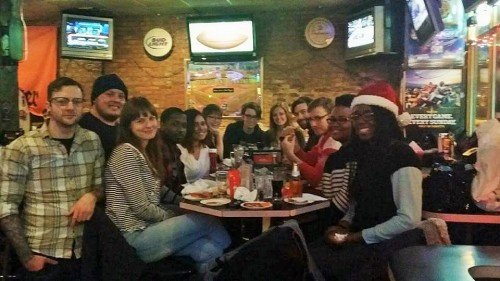
My entire cohort and I out for drinks at The South Loop Club after the last class of Fall Semester. (Peep Author/Professor Patty McNair sitting with us fifth from the left).
Unlike undergrad, it is not safe to assume that everyone is around your age in the MFA program. We all look young and it’s easy to assume everyone is coming into the program three months after obtaining their bachelor’s. Or maybe a year after. And some of us are. But it’s important to understand that that’s not the case for everyone. My cohort’s ages ranged from 22 to the early/mid 30’s.
Because many of us have lived in the real world longer, there also wasn’t a “typical” working life of a student. Some of us worked full-time, others part-time. Some interned. Others volunteered. Some of our jobs relate to our MFA. But not all. We’ve worked everywhere: from museums to retail; from on-campus work-study to Corporate America.
Our lives are different. Two of us are married. Some of us are dating. And some are single. We even live in different neighborhoods. One of us chose to live on campus her first year (although she doesn’t really recommend it for any graduate student unless it’s an absolute, positive must). We each had different commutes to and from school. (The plus for the student who lived on campus was that her commute was a 5-10 walk depending on the weather).
All of these differences and more affect our experience while pursuing our MFA. Which is why there is no typical student.
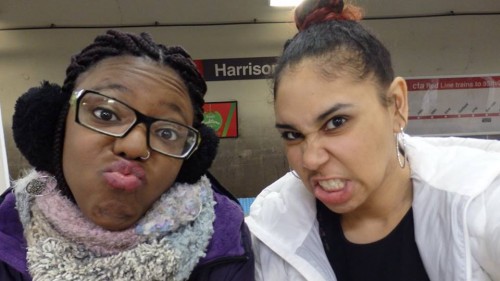
My cohort member Desiree and I being weird one evening on the train before meeting up with the rest of the crew. [Photo courtesy of Desiree Johnson]
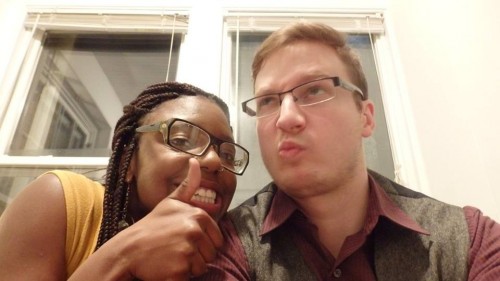
My cohort member Raymond and I sneaking photos on Desiree’s camera at Author/Professor Patty McNair’s house during her holiday mixer — she must have really liked us as a class. [Photo Courtesy of Desiree Johnson]
Although our program, and the school as a whole, is undergoing changes, something I appreciate is its willingness to work with our differences. Last year’s director even offered Directed Study courses (translation: one-on-one courses) for students with work schedules that conflict with courses offered during registration.
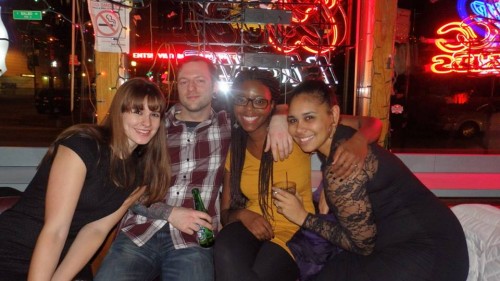
This is NOT a Directed Study course. This is actually me and my cohort members Chelsea, Mike, and Desiree at Georgie’s one night. But I really like this photo and wanted it to fit in here. [Photo Courtesy of Desiree Johnson]
So bring it!

